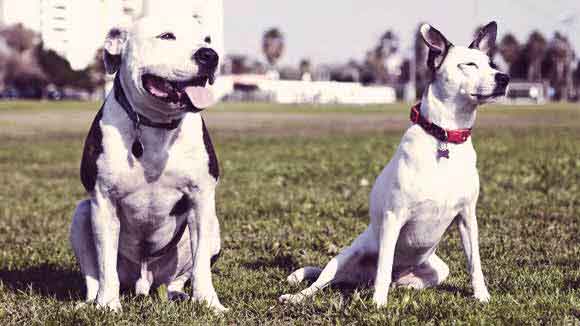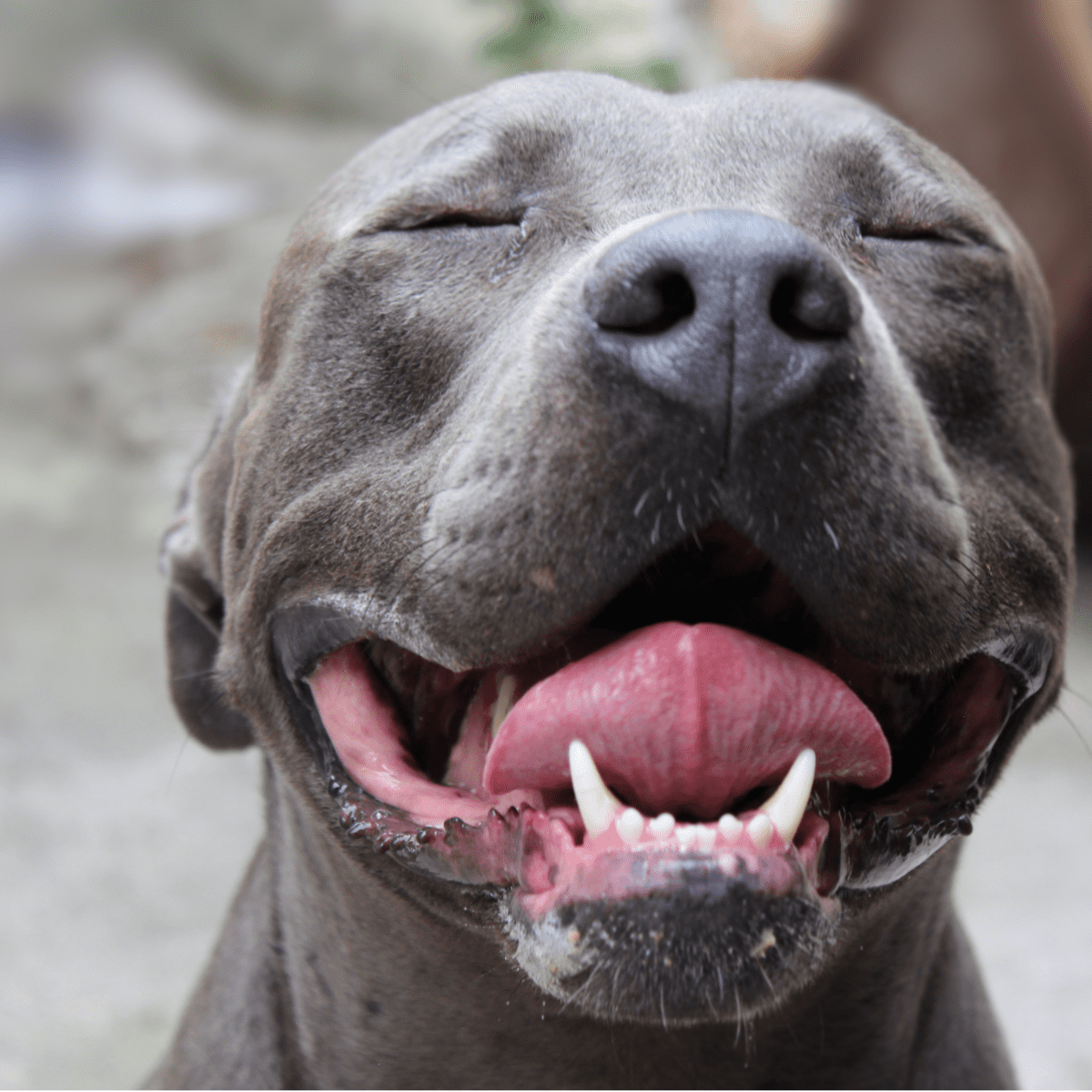Did you know that raising a pitbull requires a special kind of dedication? These amazing dogs are often misunderstood and face prejudice due to their reputation. But in reality, raising a pitbull can be an incredibly rewarding experience if done properly.
Raising a pitbull comes with its challenges, but with the right approach, it can be a fulfilling journey. Historically, pitbulls were originally bred for bull-baiting, a brutal sport that thankfully no longer exists. However, their history results in some inherent traits that can make them a little more challenging to raise than other breeds. Pitbulls are highly energetic and require plenty of exercise and mental stimulation. This means making time for daily walks, playtime, and training sessions. By providing them with proper training, socialization, and a loving environment, pitbulls can blossom into well-rounded and loyal companions. Despite their strong and muscular build, pitbulls can become loving and affectionate members of your family if given the opportunity.
Raising a pitbull can be a rewarding experience, but it does come with its challenges. With proper training and socialization, you can create a well-behaved and lovable companion. Here are some tips to make the process easier:
- Start training early to establish boundaries and commands.
- Provide plenty of exercise to keep them stimulated and happy.
- Socialize them with other dogs and people from a young age.
- Be consistent with positive reinforcement techniques.
- Seek professional help if needed.
By following these steps, you’ll be well on your way to successfully raising a pitbull.

How Hard is it to Raise a Pitbull? A Comprehensive Guide
Raising a pitbull can be a thrilling and fulfilling experience, but it comes with its fair share of challenges. From training and socialization to meeting their exercise needs, there are many factors to consider when raising this breed. In this article, we will delve into the world of pitbull ownership and provide valuable insights on how hard it is to raise a pitbull.
The Commitment and Responsibility of Owning a Pitbull
Owning a pitbull requires a significant commitment and responsibility on the part of the owner. These dogs are known for their strength, energy, and loyalty, which means they need an owner who is willing to invest time and effort into their care. Properly raising a pitbull involves providing them with regular exercise, training, socialization, and consistent discipline.
Training is one of the key aspects of pitbull ownership. Due to their strong-willed nature, pitbulls require firm and consistent training from an early age. Basic obedience, such as sit, stay, and come, is essential for their safety and the well-being of others. Advanced training, such as leash manners and recall, can further enhance their behavior and make them well-rounded companions.
Alongside training, socialization is also crucial for pitbulls. Exposing them to various environments, people, and other animals helps them become well-adjusted and reduces the chances of behavioral issues arising. Early socialization can prevent aggression and fearfulness, making your pitbull more confident and friendly in different situations.
Meeting the Exercise and Mental Stimulation Needs
Pitbulls are a high-energy breed that requires ample exercise to keep them physically and mentally stimulated. Failing to provide sufficient exercise can lead to behavioral problems and pent-up energy, which may manifest as destructive behavior. To meet their exercise needs, you should aim for at least an hour of vigorous physical activity every day.
Regular walks, runs, or play sessions in a securely fenced yard are excellent ways to fulfill their exercise requirements. Engaging in activities such as fetch, agility training, or even swimming can help burn off their energy and keep them in good shape. Mental stimulation is equally important, as pitbulls are intelligent and thrive when their minds are challenged.
Through puzzle toys, training sessions, and interactive games, you can provide them with the mental stimulation they need. Not only does this prevent boredom, but it also strengthens the bond between you and your pitbull and helps prevent behavioral issues caused by frustration or lack of mental stimulation.
The Importance of a Balanced Diet for Pitbulls
A well-balanced diet is essential for the health and well-being of pitbulls. Providing them with a nutritious diet that meets their unique nutritional needs is crucial. Pitbulls are muscular dogs with high energy levels, so their diet should consist of high-quality protein, healthy fats, and a moderate amount of carbohydrates.
Consulting with a veterinarian or a canine nutritionist can help you determine the best diet for your pitbull. They can guide you in selecting the appropriate commercial dog food or provide guidance on preparing a balanced homemade diet. It’s important to monitor your pitbull’s weight and adjust their food intake accordingly to prevent obesity or malnourishment.
In addition to a proper diet, regular veterinary check-ups, vaccinations, and parasite prevention are essential for maintaining your pitbull’s health. Ensuring they receive the necessary vaccinations and preventive treatments protects them from common diseases and parasites, keeping them happy and healthy.
Creating a Safe Environment for your Pitbull
Creating a safe environment for your pitbull is crucial for their well-being. Pitbulls are strong and athletic dogs, so it’s vital to have a secure and well-maintained fence to prevent them from escaping. This is important not only for their own safety, but also to prevent any potential harm to others or property damage.
Inside the house, it’s important to puppy-proof or dog-proof your living space. Keep hazardous substances, small objects, and delicate items out of reach. Provide them with a comfortable and designated space, such as a crate or bed, where they can rest and feel secure. Ensuring they have access to clean water, comfortable bedding, and appropriate toys is also essential.
Furthermore, pitbulls thrive on human companionship and should not be left alone for extended periods. Loneliness and boredom can lead to separation anxiety, which may manifest as destructive behavior or excessive barking. If you work long hours or have a busy schedule, consider hiring a dog walker or enrolling your pitbull in doggie daycare to provide them with social interaction and mental stimulation.
Addressing Misconceptions and Stereotypes Associated with Pitbulls
Unfortunately, pitbulls have been stigmatized due to misconceptions and negative stereotypes. It is important to address these issues and educate others about the truth behind pitbull behavior and temperament. Pitbulls are not inherently aggressive or dangerous. Their behavior is influenced by their environment, training, and socialization.
Properly raised and socialized pitbulls can be loving, loyal, and friendly family pets. It is essential to advocate for positive pitbull behavior and challenge the biases and discrimination they face. Engaging in responsible ownership and being a good ambassador for the breed can help change public perception and foster a more inclusive and accepting environment for pitbulls.
By providing accurate information and sharing positive experiences, we can debunk myths and promote a better understanding of pitbulls.
Importance of Pitbull Adoption and Rescue
There is an abundance of pitbulls in shelters and rescues waiting for their forever homes. Adopting a pitbull not only provides them with a second chance at life but also contributes to reducing the number of homeless dogs. Many wonderful, healthy, and well-behaved pitbulls are available for adoption, and with proper training and care, they can become beloved family members.
When considering pitbull adoption, it’s important to research and select a reputable rescue or shelter. Ensure that they conduct thorough behavioral assessments and provide support and guidance throughout the adoption process. Adoption fees often cover vaccinations, spaying or neutering, and microchipping, making it a cost-effective and humane choice.
By adopting a pitbull, you are not only saving a life but also experiencing the joys and rewards that come with providing a loving and forever home.
Conclusion
Raising a pitbull requires dedication, commitment, and responsible ownership. While it may present some challenges, the rewards of raising a well-trained and socialized pitbull are immeasurable. By understanding their needs, providing proper training and care, and debunking misconceptions, you can create a loving and fulfilling relationship with your pitbull. Consider adoption as a way to give a pitbull a second chance, and enjoy the journey of raising a loyal and devoted companion.
Key Takeaways: How Hard Is It to Raise a Pitbull?
- Raising a pitbull requires a commitment of time, effort, and patience.
- Proper training and socialization are crucial for a well-behaved pitbull.
- It is important to provide regular exercise and mental stimulation for a pitbull’s well-being.
- Pitbulls thrive in a loving and consistent environment with clear boundaries and rules.
- Responsible ownership, including regular vet check-ups and vaccinations, is essential for a healthy pitbull.
Frequently Asked Questions
Raising a Pitbull can be a rewarding experience, but it also comes with its challenges. Here are some common questions people have when it comes to raising a Pitbull:
Q: Are Pitbulls difficult to train?
A: Training a Pitbull requires patience, consistency, and positive reinforcement. While Pitbulls are intelligent and eager to please, they can be strong-willed at times. It’s important to start training early and be prepared to invest time and effort to teach them commands, socialization, and good behavior. With proper training techniques and consistency, Pitbulls can become well-behaved and obedient companions.
Q: Do Pitbulls require a lot of exercise?
A: Yes, Pitbulls are an active breed that requires regular exercise to stay happy and healthy. They have lots of energy to burn, so daily exercise such as walks, runs, or playtime in a secure, fenced area is essential. Lack of exercise can lead to restlessness, boredom, and even destructive behavior. Providing ample exercise opportunities and mental stimulation will help keep your Pitbull physically and mentally stimulated.
Q: Are Pitbulls good with children?
A: Pitbulls can be great family dogs when properly socialized and trained. Like any breed, they should always be supervised when interacting with children. Early socialization and positive experiences with children can help develop a strong bond between a Pitbull and a child. However, it’s crucial to teach children how to interact with dogs respectfully and to never leave them unsupervised. Responsible ownership and proper training can promote a loving and safe relationship between Pitbulls and children.
Q: Are Pitbulls aggressive?
A: Contrary to popular belief, Pitbulls are not naturally aggressive towards humans. Aggression is more often a result of improper breeding, lack of appropriate socialization, and negative experiences. Responsible ownership, early socialization, and training are vital in preventing aggression. It’s important to note that every dog is an individual and may have varying temperaments. Each Pitbull should be evaluated based on their behavior and training rather than generalizations.
Q: Are Pitbulls suitable for first-time dog owners?
A: Pitbulls can be suitable for first-time dog owners, but it’s important to be prepared for their specific needs. They require consistent training, socialization, and exercise. As a first-time owner, it may be helpful to enroll in obedience classes or seek guidance from experienced trainers. Additionally, it’s crucial to understand breed-specific legislation, insurance restrictions, and the importance of responsible ownership. With dedication and a commitment to responsible dog ownership, Pitbulls can make loving and loyal companions for first-time owners.

Tips for FIRST TIME Pitbull owners!
Summary
Raising a Pitbull can be challenging but rewarding. It’s important to provide proper training, socialization, and love. Pitbulls are loyal, affectionate, and need an owner who understands their breed.
It takes dedication to raise a Pitbull responsibly. They require exercise, mental stimulation, and a consistent routine. With the right care and attention, Pitbulls can be wonderful companions and family pets.